Those who are malnourished and have lived in a state of chronic low energy availability have worse symptoms including extreme body image distortion, numbing and flooding with unpleasant emotions, extreme preoccupation with checking body size, shape and weight, inflexible eating, intense self-criticism, and feelings of disgust and shame towards their bodies. We have called this state “hungry brain.”
This hungry brain state amplifies the characteristic struggles with critical self-evaluation and rumination about body size and shape. Clients are typically stuck in comparing mindsets that are unwholesome and lead to an increased vulnerability to restrict or purge. When family members are educated so they can recognize hungry brain, they can learn how to step in and support their loved one skillfully. This is what our staff is trained to do and teach!
We have been very interested in mindfulness based interventions to help our clients learn self-compassion, to regulate emotion and develop wholesome mindsets to support recovery. Eating disorders reduce mindful awareness. Clients lack self-compassion, ruminate, and are caught in future planning, comparing and doubt.
Mindfulness techniques can help clients focus attention on the here and now. Mindful breathing reduces behavioral activation and increases states of calm acceptance. Mindfulness practice brings awareness and increases one’s skill recognizing, managing, and anticipating emotion states.














